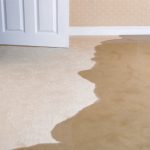When we consider professional office cleaning services through the lens of biological science, we discover a fascinating parallel between the natural ecosystems I have spent my life studying and the complex microbial environments within our workplaces. Just as a healthy forest requires particular conditions to thrive, so too does the modern office demand specific maintenance protocols to sustain the wellbeing of its human inhabitants.
The Microbial Landscape of Modern Workspaces
Singapore’s tropical climate presents what biologists term a “high-productivity environment” for microorganisms. The warmth and humidity create ideal conditions for bacterial colonies to flourish on every surface, much as moisture-rich rainforests teem with life. Within the typical office, each desk, keyboard, and door handle becomes a microhabitat supporting thousands of bacterial species, some benign, others potentially pathogenic.
Research into workplace microbiology reveals astonishing population densities. A single office telephone may harbour more microorganisms than a toilet seat, whilst computer keyboards accumulate bacterial communities that would fascinate any microbiologist. The solution lies not in achieving sterility, which proves neither possible nor desirable, but in maintaining microbial populations at levels that pose no threat to human health.
This is precisely where professional cleaning services demonstrate their value. According to Singapore’s regulatory framework, “the National Environment Agency has established official guidelines for the cleaning industry to raise standards, productivity and professionalism.” These guidelines reflect an understanding of microbial ecology translated into practical cleaning protocols.
The Ecosystem Approach to Office Maintenance
Consider the office as we would any ecosystem. It contains distinct zones, each with particular requirements:
- High-traffic areas such as lobbies and corridors, analogous to riverbanks where material constantly flows and accumulates
- Workstations functioning as individual territories requiring regular maintenance to prevent contamination buildup
- Sanitary facilities representing the most microbially active zones, demanding specialised disinfection protocols
- Kitchen and pantry spaces where food residues create nutrient-rich environments for bacterial proliferation
- Air handling systems operating as the office’s respiratory network, circulating particles throughout the environment
Professional office cleaning services approach these zones systematically, understanding that neglecting any single area affects the entire ecosystem’s health. Much as a forest depends upon decomposers to process organic matter, offices require regular cleaning to prevent accumulation of dust, allergens, and pathogens.
The Regulatory Evolution
Singapore’s approach to commercial cleaning evolved through distinct phases, mirroring how scientific understanding advances through accumulated observation. The mandatory licensing regime introduced in 2014 required that cleaning businesses demonstrate compliance with health and safety standards. Industry sources confirm that “businesses involved in office and commercial cleaning are mandated to obtain a cleaning business licence” for legal operation.
This regulatory framework ensures that those maintaining our workspaces possess proper training, much as we ensure scientists studying sensitive ecosystems hold appropriate qualifications. The Progressive Wage Model further reinforced quality by establishing career pathways for cleaning professionals, recognising that expertise develops through experience and education.
The Biological Imperative
From an evolutionary perspective, humans evolved in environments vastly different from the sealed, air-conditioned offices many now inhabit. Our immune systems developed to handle outdoor pathogens, not the concentrated microbial populations that accumulate in enclosed spaces shared by dozens or hundreds of individuals.
The Environmental Public Health Act recognises this biological reality. Industry observers note that maintaining proper office hygiene proves “essential for promoting employee wellness and ensuring sickness prevention.” The act enforces workplace cleanliness standards designed to protect employee health through evidence-based requirements.
Professional office cleaning services address this biological imperative through several mechanisms:
- Regular sanitisation using NEA-approved disinfectants reduces pathogen populations to manageable levels
- HEPA-filtration vacuum systems remove allergens and particulates that trigger respiratory responses
- Proper ventilation maintenance ensures adequate air exchange, preventing the stagnant conditions that favour microbial growth
- Systematic surface cleaning interrupts pathogen transmission routes between individuals
The Productivity Connection
Biologists understand that organism health directly influences behaviour and performance. The same principle applies to workplace environments. Employees functioning in clean, well-maintained spaces demonstrate measurably improved productivity, reduced absenteeism, and enhanced cognitive performance.
The Singapore Facility Management Benchmark 2024 quantified this relationship, revealing that organisations maintaining daily cleaning contracts achieve 15 to 25 percent cost savings annually compared to ad-hoc arrangements. These savings arise not merely from negotiated rates but from the preventive nature of consistent maintenance, which forestalls expensive remedial interventions.
The Pattern Recognition
After decades observing natural systems, one learns to recognise patterns. The parallels between ecosystem maintenance and office cleaning prove instructive. Both require regular intervention to prevent degradation. Both benefit from specialist knowledge about how different elements interact. Both demonstrate that prevention costs substantially less than restoration.
The complexity of modern office cleaning services reflects our growing understanding of workplace microbiology, human health requirements, and environmental factors. Training programmes such as the NEA Environment Cleaning Workskill Qualification ensure cleaning professionals possess the knowledge to maintain these complex environments effectively.
The Synthesis
Understanding offices as ecosystems requiring active maintenance transforms how we perceive workplace cleanliness. It ceases to be merely aesthetic preference and becomes instead a fundamental requirement for human health and organisational function. The evidence accumulated through decades of workplace health research supports this biological perspective unambiguously. Organisations that recognise this reality and invest accordingly in professional office cleaning services create environments where human potential flourishes, much as properly maintained habitats support thriving biological communities.



